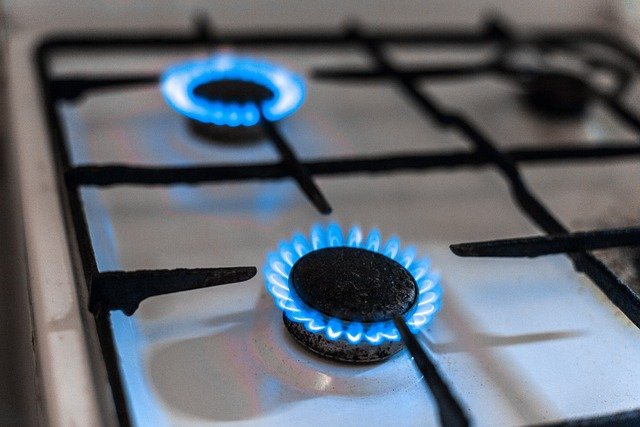How to Choose the Best Business Gas Supplier for Your Restaurant
Selecting the right business gas supplier can significantly impact your restaurant's operational costs and efficiency. With energy prices fluctuating and various contract options available, restaurant owners need to understand how to evaluate suppliers based on reliability, pricing structures, and service quality. Making an informed decision about your gas supply can lead to substantial savings while ensuring your kitchen operations run smoothly.

Running a restaurant requires careful management of resources, and energy costs represent a significant portion of operational expenses. Finding the right business gas supplier is crucial for maintaining profitability while ensuring your kitchen can operate efficiently. This article explores the key considerations when selecting a gas supplier for your restaurant business, helping you navigate contracts and optimize your energy usage.
Essential Factors for Choosing Your Business Gas Supplier
When selecting a gas supplier for your restaurant, several critical factors should influence your decision. First, consider the supplier’s pricing structure and how it aligns with your usage patterns. Restaurants typically have peak usage periods that may benefit from specific rate plans. Second, evaluate the contract length options—some suppliers offer short-term flexibility while others provide better rates for longer commitments. Third, examine the supplier’s billing transparency, ensuring you’ll receive detailed breakdowns of your consumption and charges. Finally, investigate whether the supplier offers energy efficiency advice or programs specifically tailored to the restaurant industry, which could help reduce your overall consumption.
Cut Restaurant Energy Costs Through Strategic Supplier Selection
Restaurants can significantly reduce their energy expenditure by choosing the right gas supplier. Start by conducting an energy audit to understand your current usage patterns and identify potential areas for improvement. This data will help you negotiate better rates with suppliers. Compare quotes from multiple providers, paying close attention to unit rates rather than estimated annual costs, which can be misleading. Consider suppliers who offer smart metering technology, allowing you to monitor usage in real-time and adjust operations accordingly. Some suppliers also provide specialized restaurant packages with rates optimized for typical kitchen usage patterns, potentially offering substantial savings compared to standard business rates.
Navigate Gas Contracts: Fixed, Variable, & Flexible Plans
Understanding the different types of gas contracts is essential for making the right choice for your restaurant. Fixed-rate plans provide price stability, protecting your business from market fluctuations for the duration of your contract—typically one to three years. This predictability can be valuable for budgeting purposes. Variable-rate contracts, on the other hand, adjust according to market conditions, potentially offering savings during periods of low demand but exposing you to higher costs when prices rise. Flexible plans combine elements of both, often allowing you to purchase portions of your gas at fixed rates while keeping some exposure to market prices. For restaurants with seasonal business fluctuations, these hybrid approaches can be particularly advantageous.
Gas Supplier Reliability & Stellar Customer Service
Reliability is paramount when choosing a gas supplier for your restaurant. Any interruption in service could result in closed doors and lost revenue. Research potential suppliers’ track records for consistent service delivery and emergency response times. Customer service quality is equally important—look for suppliers offering dedicated account managers for business customers, 24/7 support lines, and multiple communication channels. Online reviews and industry ratings can provide insights into other restaurants’ experiences with various suppliers. Additionally, inquire about how suppliers handle billing disputes and what their processes are for addressing service issues, as these factors significantly impact your overall satisfaction.
Optimize Your Restaurant’s Gas Supply for Efficiency
Beyond selecting the right supplier, optimizing how your restaurant uses gas can lead to substantial savings. Modern, energy-efficient kitchen equipment can significantly reduce consumption—consider upgrading older appliances that may be consuming excessive gas. Implement standard operating procedures for your kitchen staff that include energy-saving practices, such as only turning on equipment when needed and regular maintenance of gas appliances. Some suppliers offer energy management systems that can help identify wasteful practices and suggest improvements. Additionally, explore whether your supplier offers incentives or rebates for energy efficiency upgrades, as these can offset the initial investment costs.
Business Gas Supplier Comparison for Restaurants
When comparing gas suppliers for your restaurant, it’s essential to look beyond the headline rates. Below is a comparison of major business gas suppliers in the UK market:
| Supplier | Contract Flexibility | Average Rate | Restaurant-Specific Features |
|---|---|---|---|
| British Gas | 1-5 year terms | 5.0-7.5p/kWh | Energy efficiency consultations, smart metering |
| EDF Energy | 1-3 year terms | 4.8-7.2p/kWh | Dedicated hospitality team, flexible billing |
| E.ON | 1-4 year terms | 5.2-7.0p/kWh | Energy management tools, carbon reduction advice |
| Gazprom Energy | 1-5 year terms | 4.7-6.9p/kWh | Volume tolerance thresholds, market insight reports |
| Total Gas & Power | 1-3 year terms | 5.1-7.3p/kWh | Seasonal usage adjustments, hospitality specialists |
Prices, rates, or cost estimates mentioned in this article are based on the latest available information but may change over time. Independent research is advised before making financial decisions.
When evaluating these suppliers, consider how their offerings align with your restaurant’s specific needs. For instance, if your restaurant experiences significant seasonal variations in business, a supplier offering flexible consumption thresholds might be advantageous. Similarly, if you’re planning energy efficiency improvements, a supplier with relevant consultation services and rebate programs could provide additional value beyond their base rates.
Making the right choice for your restaurant’s gas supply involves balancing immediate cost considerations with long-term reliability and service quality. By thoroughly researching your options and understanding the different contract structures available, you can secure a gas supply arrangement that supports your business goals while keeping operational costs manageable. Remember that the lowest rate doesn’t always represent the best value—consider the complete package of services, support, and flexibility when making this important business decision.



